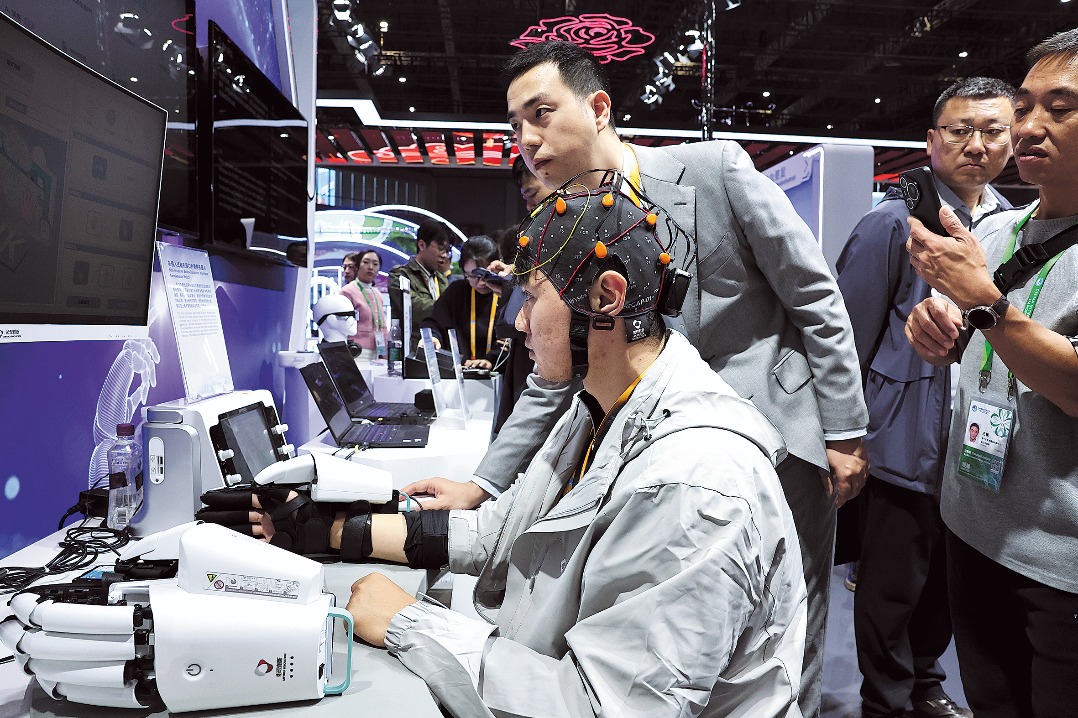Press refresh


China and Japan have made giant strides since normalizing ties 50 years ago, but they need to show the same courage and wisdom as then to build mutual trust
This year marks the 50th anniversary of the normalization of China-Japan diplomatic ties. Over the past 50 years, bilateral relations have gone through ups and downs, but on the whole, they have kept the bottom line of peaceful cooperation and made major contributions to the development of the two countries, the well-being of their citizens, and peace, stability and prosperity in Asia and the world. At present, the international situation is turbulent and Sino-Japanese relations are also facing headwinds. However, history tells us that China and Japan benefit from peace and suffer from conflicts. Peaceful coexistence and friendly cooperation are, therefore, the only correct choices.
The normalizing of bilateral relations has reversed the historical track of Sino-Japanese ties. In 1972, Japanese Prime Minister Kakuei Tanaka visited China, and the two sides inked the China-Japan Joint Statement, which marked the end of "abnormal relations between Japan and China", fundamentally changed the general tone of their relations, led them on the path of peaceful cooperation, and opened a new era in history.
It solved the strategic needs of the two countries at that time. Since then, both sides have benefited from economic growth and social development.
In 1978, China initiated its reform and opening-up, and economic construction became the core task. After Japanese Prime Minister Masayoshi Ohira's visit to China in 1979, China began receiving financial assistance from Japan. In the following 30 years, Japan provided loans totaling 3.4 trillion yen ($24.2 billion), which China urgently needed for economic construction. According to Article 9 of the China-Japan Joint Statement, the two countries successively concluded agreements on trade, navigation, aviation and fishery. Their cooperation opened a window for China's opening-up and enabled it to gain valuable experience.
Meanwhile, since the Japanese market was weak in digesting commodities after its rapid economic growth, its business circle strongly demanded long-term and stable economic cooperation between the two sides. The normalization of diplomatic relations also opened up a huge overseas market for Japan. Trade volume between the two countries surged from about $1.1 billion in 1972 to $371.4 billion in 2021.
China and Japan, the main adversaries on the Asian continent during World War II, realized reconciliation through the normalization of diplomatic relations, which effectively safeguarded peace in Asia. The normalization of relations created a breach in the Cold War while creating favorable conditions for rapid economic growth in Asia. Both China and Japan are major powers in the region, and the world's second- and third-largest economies, respectively. In 2021, the total economic volume of China and Japan account for 23.6 percent of the world's total and 89.7 percent of East Asia's total. Peaceful cooperation between the two countries with different social systems over the past half century has made great contributions to the prosperity and stability of the region and also boosted multi-polarization.
However, the fruits of such cooperation are mainly seen in the economic sector. Historical issues and divergences on geopolitics and the regional security challenges still widely exist.
In recent years, Japan has paid more attention to the counterbalance of soft power, including the so-called human rights diplomacy. Since 2020, Japan's policy toward China has been readjusted again, and the antagonism in the national security and the defensive nature in economic field have been growing. Increasing intervention in the Taiwan question has caused serious interference to Sino-Japanese relations. At the same time, it has generalized the concept of national security and formulated an economic security law in an attempt to contain China's development.
Since modern times, the two countries have chosen different development paths and experienced different fates. It will be a long and difficult journey to build strategic mutual trust. During the Cold War, China and Japan belonged to two different camps, the East and the West. The two countries have opposing views on the jurisprudential basis of the postwar order, with China advocating the Cairo Declaration and the Potsdam Proclamation, and Japan advocating the so-called San Francisco Peace Treaty, which is deemed illegal and invalid by China. From the perspective of its national system and development path, China is a socialist country ruled by the Communist Party of China and pursues an independent foreign policy based on the Five Principles of Peaceful Coexistence.
The establishment and consolidation of Japan's postwar conservative regime depends on the support of the United States. This makes it even more difficult to build strategic mutual trust.
The world is entering a new period of change and turbulence, threats such as unilateralism, hegemonism, trade protectionism and power politics are on the rise, and economic globalization is encountering adverse currents.
In the face of China's development, the US and the West have incited division and created bloc confrontation around China. The previous US administration of Donald Trump portrayed China as a "strategic competitor". The current Joe Biden administration has declared China to be the US' "most serious competitor" and is seeking to mobilize its allies and "friendly nations" to suppress China. As an important pawn on the US' geopolitical chess board in the Asia-Pacific, Japan relies on the US to contain China, which is prominent and will inevitably affect Sino-Japanese relations.
Given all this, and with an eye on the future, China and Japan should strive to return to the original intention of normalizing their relations and adhere to peaceful coexistence. The older generation of leaders ushered in a new era for bilateral relations when they made the historic decision to normalize relations. The difficulties and challenges they faced 50 years ago were far greater than those the two countries face now. However, those leaders persisted in seeking common ground while reserving differences, transcended differences in social systems and ideologies, and sought global peace and development. Today, the two neighbors should keep their eyes fixed on the right direction for bilateral relations, and make steady progress and contributions to build China-Japan ties for a new era.
Both sides should work to enhance trust, and make efforts to properly manage and control their differences. There are both historical problems and realistic conflicts of interests between China and Japan. Since contradictions and differences are inevitable, it is important to strengthen dialogue and communication at all levels, properly manage and control differences, avoid misjudgments, treat contradictions while developing bilateral relations, strictly follow the spirit of the four political documents and various consensuses reached between them.
They should take a long-term view and promote practical cooperation. Both China and Japan are facing common challenges such as aging populations and the worsening climate crisis. There is huge space for cooperation in medical care, energy conservation and environmental protection, intelligent manufacturing and other industries.
Expanding bilateral and multilateral cooperation and expanding their common interests would not only help resolve differences and reduce frictions, but also lay a solid foundation for both sides to handle and solve problems, and further deepen their cooperation and forge closer relations.
The author is a researcher and director-general of the Institute of Japanese Studies of the Chinese Academy of Social Sciences. The author contributed this article to China Watch, a think tank powered by China Daily.
The views do not necessarily reflect those of China Daily.
Contact the editor at editor@chinawatch.cn

































